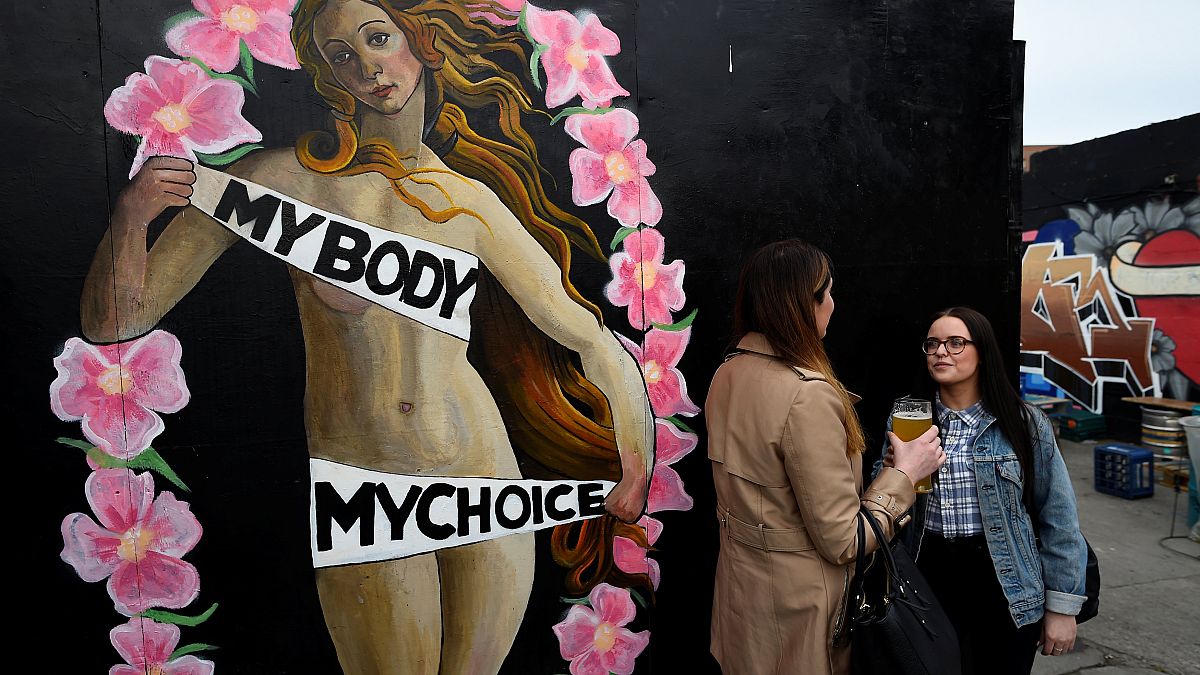Campaigners say abortion is harder than ever for women in Italy, exactly 40 years since it was legalised.
Women’s abortion rights in Italy are the worst they have been since the 1970s as a civil war rages on the issue, campaigners claim.
They say increasing numbers of gynaecologists are refusing to carry out terminations, forcing women into unsafe, illegal abortions.
It comes amid a publicity drive from anti-abortion organisations that are attempting to demonise women who terminate, according to Silvana Agatone, president of LAIGA, an association of gynaecologists that supports abortion rights.
Anti-abortion groups say they hope the number of conscientious objectors increases and that women’s choice should end when another life is involved.
Why is getting an abortion tougher?
Italy legalised abortion on May 22, 1978 — exactly forty years ago today — allowing women to terminate in the first three months of pregnancy or after if the mother’s life is at risk or there is an abnormal foetus.
But the legislation contained a clause allowing doctors, nurses, anaesthetists and others to declare themselves conscientious objectors and refuse to perform abortions.
Figures compiled by the Italian government show the percentage of gynaecologists objecting has jumped from 58.7% in 2005 to 70.9% in 2016.
It’s not just gynaecologists who professionally object to carry out terminations, nearly half of anaesthetists refuse to get involved, according to official data.
Agatone claims other staff use more subtle means to disrupt abortions, such as nurses who don’t wash the utensils needed to carry out the operation, or hospital porters that refuse to wheel in patients for terminations.
“They don’t use the conscientious objection, they abuse the objection,” Agatone told Euronews.
“The environment around you is very negative because if you provide abortions you are treated like a criminal.
“It’s very difficult to work in an environment that is so against you and makes so many problems for you.”
What are the consequences?
Agatone says the higher number of objectors often means desperate women — either by choice or by necessity — having to go from town-to-town searching for someone who will carry out the operation. If they don't find someone, they are forced into hidden, illegal and unsafe abortions.
Government figures show around 60% of medical establishments provide abortions; Agatone says all should by law.
Agatone's claims come amid a publicity drive by anti-abortion organisations such as ProVita Onlus and CitizenGo.
Agatone said the increasing number of conscientious objectors and the prominence of anti-abortion groups means abortion rights for women are at the worst level since terminations were legalised 40 years ago.
“It’s becoming much worse,” she added. “This month I’m seeing stuff I’ve never seen before — there’s a civil war on abortion.”
Why is this happening?
Experts say conscientious objectors are rising because gynaecologists who are against abortion find it easier to advance in Italian hospitals.
"The system in the hospitals favour the career of the objectors, while non-objectong doctors are often mobbed and discriminated and have to carry the responsibility alone to ensure that the law is implemented," said Irene Donadio, spokeswoman for the International Planned Parenthood Federation European Network.
"Some are forced to travel to different hospitals to ensure that women receive care in regions in which there is huge percentage of hospitals that are not ensuring the service via their permanent staff.
"Of course even this is not enough and many women are forced to move to hospitals in other parts of the country to try to get the care they are entitled to."
Donadio said the rise of populism has also helped foster the growing influence of anti-abortion groups.
"These groups can enjoy a much bigger political influence now that the League has won the elections and is about to enter the new government," she added.
"The League is close to Russia and Trump and shares a very oppressive agenda around women's reproductive autonomy.
"The populist Five-Star Movement is flirting with the far-right wingers and from their programme it seems they care more about stopping children getting vaccines than women's right to health or how they are treated in hospitals."
What do anti-abortion groups say?
Alessandro Fiore, son of fascist Italian politician Roberto Fiore and spokesman for ProVita Onlus, said posters put up in Rome and Genoa recently were part of a large anti-abortion communication campaign that will see publicity in 100 provinces.
“It is not true that legislation of abortion leads to a reduction in the number of abortions,” Fiore told Euronews.
“By making it more accessible and by normalising it in the common conscience leads to an increase in the number of abortions.
“It happened in all countries that have legalised abortion and an increase occurred in Italy in the years that followed legalisation.
“We hope that conscientious objection will increase further, this is not a cause for concern.
“The freedom of choice by women is a great misunderstanding: not only about one’s own body but also about the child in the womb, whose right to life is denied.
“We support those who object and invite reflection on why some gynaecologists and scholars refuse to practice abortion: as gynaecologists they realise what abortion is, it is a matter of destroying the body of that child.”
Italy’s anniversary come as another historically Catholic country, Ireland, holds a referendum on Friday on whether to relax strict abortion laws.
Your view | What do you think? Should Italy do more to ensure women can have abortions or should doctors be allowed to object? Let me know: chris.harris@euronews.com
